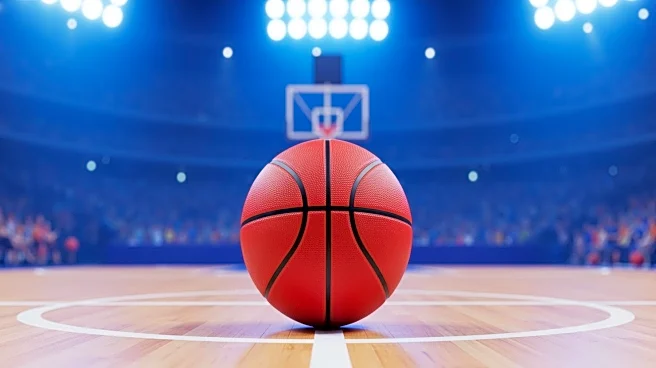What's Happening?
Taylor Groves, a former four-star recruit for Ole Miss football, has made a remarkable transition from the gridiron to the basketball court. Groves, who was once pursued by top SEC programs such as Alabama, Auburn, Kentucky, and Texas A&M, decided to leave
football last winter to focus on basketball. This week, he opened the season for Volunteer State Community College with an impressive 46-point performance against Snead State Community College. Groves shot 16-for-28 from the field, 8-for-11 from three-point range, and was perfect from the free-throw line, adding six rebounds and four assists to his stats. His decision to switch sports came after he faced mental challenges at Ole Miss, prompting him to return home to Tennessee to clear his head.
Why It's Important?
Groves' transition from football to basketball highlights the versatility and resilience of athletes who can excel in multiple sports. His performance not only showcases his talent but also opens new opportunities in basketball, potentially attracting attention from major college programs. This shift could influence other athletes facing similar challenges in their primary sport to explore alternative paths. Groves' success on the basketball court may also impact recruitment strategies, as colleges might consider multi-sport athletes who can bring diverse skills to their teams.
What's Next?
Groves' impressive debut has put him back on the radar for major college basketball programs, potentially leading to offers from Power Four schools. As he continues to perform well, he may attract scouts and recruiters looking for talented players who can make an immediate impact. His journey could inspire other athletes to pursue their passions in different sports, especially if they face setbacks in their initial choice. Groves' future in basketball looks promising, and his continued success could lead to a significant career shift.
Beyond the Headlines
Groves' story underscores the importance of mental health and personal well-being in sports. His decision to leave football due to mental challenges and find success in basketball highlights the need for support systems for athletes dealing with similar issues. It also raises questions about the pressures faced by young athletes in high-stakes environments and the importance of allowing them to explore different avenues for their talents.















